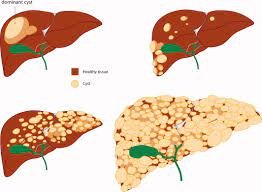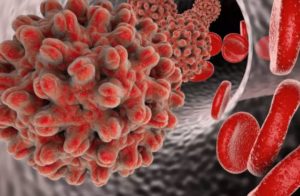Hepatitis E: Causes, Symptoms, Diagnosis and Natural Treatment
par Latif Worou · Publié · Mis à jour
What are the Causes? All about Hepatitis E
The hepatitis E virus is spread through feces. If you drink or eat something that has come into contact with the feces of someone infected with the virus, you can get it. Hepatitis E is more common in areas of the world where hand washing is poor and clean water is scarce. This is less common in the United States, where water and wastewater treatment plants kill the virus before it enters the drinking water supply.
You also can get hepatitis E if you eat undercooked meat from infected animals, such as pigs or deer. Less often, you can get the virus from raw shellfish that comes from tainted water.
What are the Symptoms? All about Hepatitis E
You probably don’t. If you do have symptoms, they may appear 2 to 6 weeks after infection. They may include
- mild fever
- feeling extremely tired
- less hunger
- stomach problems
- feeling like vomiting
- abdominal pain
- black pee
- light-colored poop
- skin rash or itching
- joint pain
- yellowing of the skin or eyes
Diagnosis
Your doctor will ask for your medical history and details about your symptoms. Tell your doctor about any recent travel. Tell them if you think you might have had contact with water contaminated by sewage.
Your doctor will use a blood test or a stool test to diagnose hepatitis E.
Know all about Hepatitis E. Cases of hepatitis E are clinically indistinguishable from other types of acute viral hepatitis. However, the diagnosis can often be strongly suspected in appropriate epidemiological settings, for example when several cases occur in localities in known endemic areas, in settings with a risk of water contamination when the disease is more severe in pregnant women, or if hepatitis A has been excluded.
Definitive diagnosis of hepatitis E infection is usually based on the detection of specific anti-HEV immunoglobulin M (IgM) antibodies to the virus in a person’s blood; this is usually sufficient in areas where the disease is common. Rapid tests are available for use in the field. All about Hepatitis E
Other tests include reverse transcriptase polymerase chain reaction (RT-PCR) to detect hepatitis E virus RNA in blood and stool. This test requires specialized laboratory facilities. This test is particularly needed in areas where hepatitis E is uncommon and in uncommon cases of chronic HEV infection.
Treatment
In most cases, hepatitis E goes away on its own in about 4-6 weeks. These steps may help relieve your symptoms:
- rest
- eat healthy food
- drink a lot of water
- avoid drinking alcohol
Consult your doctor before taking medications that may damage your liver, such as B. acetaminophen.
If you are pregnant, your doctor may put you under observation in the hospital. If your condition is severe, you may be given medication to fight the infection. To have a special treatment you have to link up to the center Afrique Santé Bio.
There is no specific treatment capable of altering the course of acute hepatitis E. As the disease is usually self-limiting, hospitalization is generally not required. Most important is the avoidance of unnecessary medications. Acetaminophen, paracetamol and medication against vomiting should be used sparingly or avoided.
Hospitalization is required for people with fulminant hepatitis and should also be considered for symptomatic pregnant women.
Immunosuppressed people with chronic hepatitis E benefit from specific treatment using ribavirin, an antiviral drug. In some specific situations, interferon has also been used successfully.


Commentaires récents